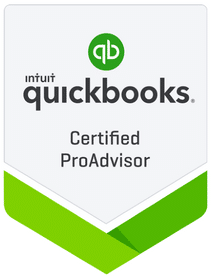- Patrick Roney
- (877) 503-8607
Follow Us :
Follow Us :
Proledge
February 25, 2011

Keeping good financial records is a common nightmare for most small business. What should you keep? How long? Is electronic OK? How to organize all these documents? Here are some high level guidelines, but bear in mind that the law around bookkeeping records is loaded with exceptions and corner cases. In case of doubt, always check with your CPA or attorney. Another disclaimer: this blog is about financial records as they are relevant to the IRS. Records that are HR related or that involve legal contracts follow very different rules.
The days when the IRS wanted every bookkeeping record to be on paper are long gone. As long as you can retrieve documents easily and as long as they are very clearly readable, IRS inspectors are fine with electronic records.
The beauty of electronic records, besides their obvious advantage in term of space savings is that you can keep backups in multiple locations. With paper, you are at the mercy of a flood, fire or theft. With electronic bookkeeping records, make sure to have backups offsite. Options include online backup services such as Mozy, online document management solutions such as SmartVault or simply DVD copies kept in a safe deposit box at your bank.
Many of your financial records are peppered around with 3rd parties such as your bank, your payroll provider, your CPA, your bookkeeper, your insurance company, etc… By the time you get audited, you may no longer be using these providers and you may not have access to this bookkeeping data anymore. Always store copies on your side. For instance, save a PDF of all your bank statements.
The IRS says that you don’t need to keep receipts under $75. However, it also says that you need to be able to substantiate ANY expense that you incur, implying that, if you don’t keep the receipts, you need to keep a log that includes the date, time, place, amount, who was involved, and the business purpose of the expense. Why sweat it then? Just keep all your receipts and handwrite on them the business purpose. You can then file them or scan and shred.
For small businesses, there is no need to create complex indexing systems. For instance, keeping bookkeeping records in separate folders for each vendor might be overkill. A folder per month for all your receipts and statements is often sufficient. You can then rely on QuickBooks to tell you when a given transaction took place, to help you find the correct folder. This is a case of quantity over quality. Focus on keeping everything rather than on the way it is organized. The more complex your organization system is, the less likely you are to stick with it.
The regulations on how long to keep financial records varies wildly depending on the type of record. If you are current with your taxes and filing, 7 years is a safe rule of thumb. Some people might say that it’s too long, but it is simpler to follow this rule than to have to keep different types of records in different folders and once a year go through the excruciating process of having to decide what to get rid of and what to keep. The main exception is for tax returns. Try to keep those for the life of the company. Digitize them if necessary to save space.
Where does the IRS inspector go first when they audit you? The general ledger. The inspector will start asking for supporting documentation based on what he/she sees in QuickBooks. The cleaner QuickBooks is and the more details you have about each transaction in QuickBooks, the less documentation you will have to retrieve.
It’s the small stuff that gets you in trouble. Write down who you met with and why on each receipt.
The IRS will compare the entries in your calendar to the transactions you made. Each year, archive a paper or electronic copy of last year’s calendar in your files.
The IRS wants you to track the mileage of your odometre at the beginning of your trip and at the end of your trip. An entry like “2/25/11 – 32 miles to go meet with Bob” is not sufficient. It should look more like this: “2/25/11. 45,000 miles through 45,032 miles. Met with Bob Smith from Acme Ventures at 205 1st Street, Austin. Sales call.” Once a month, rip the pages of your log, enter the mileage into QuickBooks and archive the log.


Fill out the form below to sign up to our Blog Newsletter and we’ll drop you a line when new articles come up.
Bookkeepers.
Professional. Affordable.
ProLedge is a bookkeeping services firm.
Copyright © 2024 All rights reserved.
Hello. Can we help you?